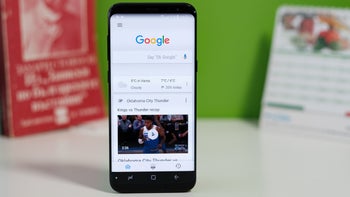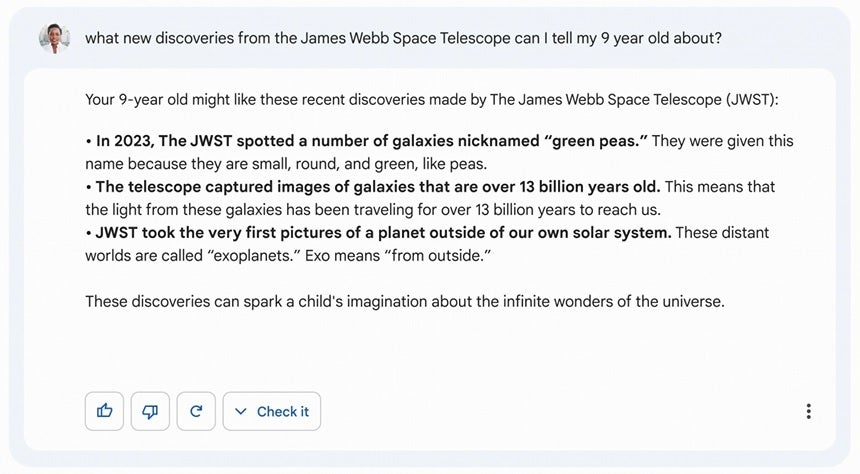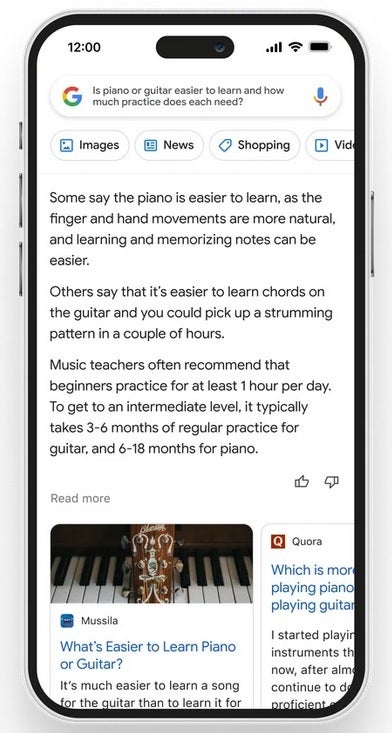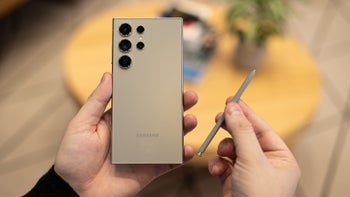Google introduces its conversational AI platform Bard; public availability just weeks away

Everybody is talking about Open AI's ChatGPT, the conversational chatbot already expected to replace Google Search. It has teachers worried about students using ChatGPT to turn in writing assignments and has journalists and other human workers afraid about being replaced by a bot. On Monday, Google and Alphabet CEO Sundar Pichai authored a blog post in which he introduced Google's answer to ChatGPT called Bard.
Calling AI "the most profound technology we are working on today," Pichai wrote, "AI helps people, businesses and communities unlock their potential. And it opens up new opportunities that could significantly improve billions of lives. That’s why we re-oriented the company around AI six years ago — and why we see it as the most important way we can deliver on our mission: to organize the world’s information and make it universally accessible and useful."
Bard is Google's experimental conversational AI platform
Like ChatGPT, Bard is conversational and relies on Google's Language Model for Dialogue Applications (LaMDA). It will be available for use by trusted testers before Google opens it up and makes it more widely available to the public.

Bard answers a complex question about NASA’s James Webb Space Telescope to a 9-year-old
Pichai explains where Bard will get its information from and more by writing, "Bard seeks to combine the breadth of the world’s knowledge with the power, intelligence, and creativity of our large language models. It draws on information from the web to provide fresh, high-quality responses. Bard can be an outlet for creativity, and a launchpad for curiosity, helping you to explain discoveries from NASA’s James Webb Space Telescope to a 9-year-old, or learn more about the best strikers in football right now, and then get drills to build your skills."
Google says that it will launch Bard with a lightweight version of LaMDA which requires less computing power thus allowing more users to try it out giving Google more feedback. Google will combine this feedback with its own internal testing to make sure that Bard passes over a "high bar for quality, safety, and groundedness in real-world information." During this phase, Google will look to increase Bard's speed and quality.
And while ChatGPT is seen as a Search replacement, Google is using its AI capabilities to improve Search. Pichai points out the change in Google Search queries that helps users get the answers to the questions that deep inside they want to ask. "When people think of Google, they often think of turning to us for quick factual answers, like 'how many keys does a piano have?'"
Google will be adding AI capabilities to Search
The executive continues, "But increasingly, people are turning to Google for deeper insights and understanding — like, 'is the piano or guitar easier to learn, and how much practice does each need?' Learning about a topic like this can take a lot of effort to figure out what you really need to know, and people often want to explore a diverse range of opinions or perspectives." Eventually, Google will offer tools and APIs that will allow others to develop informative apps with Bard's AI capabilities.

Google will soon add AI capabilities to its Search app
But soon, Google plans on adding AI features to Search that will turn complex information from different sides of the story into "easy-to-digest formats." You'll be able to understand the big picture and learn more from the internet. Pichai states that new AI features will soon be available on Google Search. The idea is to create new ways for users to take advantage of the information they receive from Google Search regardless if the response from Search is a video, audio, images, or language.
Google's CEO promises that when it comes to AI it will be "bold with innovation and responsible in our approach." The executive made it sound like we will see Bard start to make its mark on Google Search and other Google applications "in the weeks and months ahead."










Things that are NOT allowed: